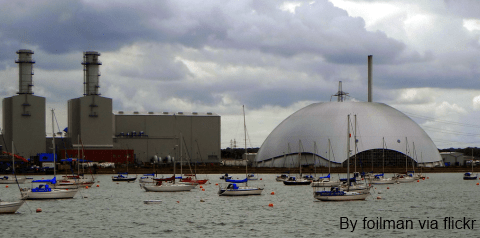Waste Management Jobs – Much More Diverse Than Most People Realise
 Those with waste management jobs are responsible for organizing and managing waste collection, waste treatment and disposal, and include employment within recycling facilities. An individual with a professional waste management job oversees the work of many different departments or may be assigned to one specific area of supervision depending on the employer. Running operational waste manageent facilities including installing, monitoring, adjusting and maintaining waste management process plant and equipment, training new employees, hiring and firing workers, improving the productivity and ensuring the safety of their assigned areas, and controlling costs are all common duties for these professionals.
Those with waste management jobs are responsible for organizing and managing waste collection, waste treatment and disposal, and include employment within recycling facilities. An individual with a professional waste management job oversees the work of many different departments or may be assigned to one specific area of supervision depending on the employer. Running operational waste manageent facilities including installing, monitoring, adjusting and maintaining waste management process plant and equipment, training new employees, hiring and firing workers, improving the productivity and ensuring the safety of their assigned areas, and controlling costs are all common duties for these professionals.
Employer requirements for waste management jobs vary, but a bachelor’s degree in management or in an engineering discpline will often be sought by employers. Community colleges, colleges, and universities all offer suitable training in management which can be found in many localities.
Managing waste streams requires a co-ordinated effort by a number of waste management teams. After your garbage and recycling are collected from your curb, they are taken to a processing center where the waste is sorted and transferred to the right location. Some of it may end up in landfill while more and more as time goes on, will be sorted, cleaned, and sold for reuse.
Working with both Client and Contractor on major new build / retrofit / upgrade projects is another common role for those in waste management jobs. The waste industry is involved in the full life-cycle operation of very sophisticated equipment, which is sued to re-use, minimise, recycle and treat all forms of “wastes” from the early design and construction stages through to ongoing operations and maintenance once a plant is operational. This means that those who take on waste management jobs have a demanding and very interesting area to work in and develop their careers, nowadays they are frequently presented with the challenge of rapidly building new waste transfer, sorting, and treatment plants, and the professional engineering labour market in this area is expanding.
Working as waste management consultants also comes within the scope of what are described as waste management jobs. The Waste Management consultant is required to carry out technical studies to provide solutions to customers’ waste issues. Many work within the nuclear industry, decommissioning old nuclear plants and finding safe ways to store nuclear waste.
Being a hazardous waste management specialist is also a waste management job. Just as is being a driver responsible for the collection and hand loading of residential waste, as well as the transporting of this waste by a front-load or rear-load trucks to landfill sites.
Waste management jobs are also, of course, about the traditionally known employees which carry out commercial and residential garbage collection and disposal, better known in the past as “bin men” and “garbage collectors”. But, many people have a common misconception that waste management jobs only include garbage collection and nothing else. However, you need to understand that these waste management job opportunities also consist of many other posts.
Waste management jobs are probably much more varied, and many are probably better paid than you are probably aware. It is indeed true that in the past waste management jobs were synonymous with the “dustman†(refuse collection operative) and tip worker. If that is what you still think of the industry today, then you are a long way out of touch and I if you are searching for a job, we would suggest that you might want to consider a job in the waste management industry.
Furthermore, if you have no qualifications, or by choice seek employment which engages your use of your physical abilities rather than your brain, there are also possibilities for emplyent in a new breed of waste management job, namely that of the “picker” Various types of paper are mixed when collected, and in many areas the household collections “co-mingle” several materials to make householder storage simple, and collection costs as low as possible. For example, glass may be collected with tins, and plastics arrive in a seaparate container, but mixed with all sorts of different types of plastic materials. These must be sorted to give them a much greater value once separated into the separate types. That is where the pickers come in. The job is simple and repetitive, and comprises the lifting out of separate materials from a conveyor as the household recycled material moves past.
 Hazardous waste collection treatment and disposal is a separate part of the waste management industry these days from the municpal waste management sector, but provides many specialist jobs. Hazardous waste is any solid, liquid, or gaseous waste material that may pose substantial hazards to human health and the environment if improperly treated, stored, transported, disposed of, or otherwise managed. Many chemists are employed in this field, and they enjoy a wide range of careers.
Hazardous waste collection treatment and disposal is a separate part of the waste management industry these days from the municpal waste management sector, but provides many specialist jobs. Hazardous waste is any solid, liquid, or gaseous waste material that may pose substantial hazards to human health and the environment if improperly treated, stored, transported, disposed of, or otherwise managed. Many chemists are employed in this field, and they enjoy a wide range of careers.
Waste is one of the most abundant resources on the planet, and it has until recently largely been buried in environmentally harmful landfills. The green economy is growing rapidly to address this, which means a rich opportunity for ecologically conscious job-seekers. If you want to push society toward sustainability through increased recycling and reuse, waste management may be your calling in a green career transition.
The median expected salary for a typical Waste Management Manager in the United States is $92,000 (2011).



